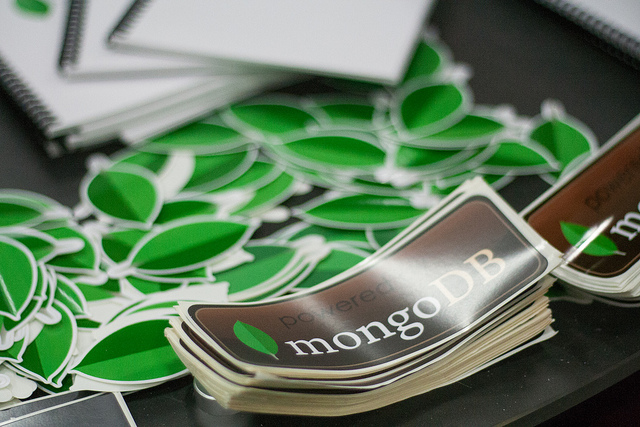Will Atlas Help Keep Competitors Away From MongoDB?

Garrett Heath/Flickr.com.
The stock market has had a turbulent last quarter, but Billion Dollar Unicorn MongoDB (Nasdaq: MDB) seems immune to the fluctuations. Since listing on the Nasdaq in October 2017, the database services provider has seen its stock more than triple. Recent results suggest that the growth is not slowing down soon.
MongoDB’s Financials
MongoDB recently announced third-quarter results that saw revenues grow 57% over the year to $65 million. Subscription revenues grew 59% to $60.1 million and Services revenues grew 36% to $4.9 million. For the quarter, net loss grew from $24.2 million a year ago to $31.3 million. Non-GAAP net loss fell from $0.44 per share a year ago to $0.30 per share. The results were significantly better than the Street’s forecast of revenues of $60.25 million for the quarter with an adjusted loss of $0.40 per share.
For the current quarter, it expects revenues of $73-$74 million with a non-GAAP net loss of $0.39-$0.40 per share. It expects to end the current year with revenues of $243.7-$244.7 million and an adjusted net loss of $1.53-$1.52 per share. The Street was looking for revenues of $64.4 million for the quarter with a net loss of $0.38 per share and revenues of $229.7 million for the year with a net loss of $1.62 per share.
MongoDB’s Atlas Expansion
MongoDB had launched its cloud-database-as-a-service offering Atlas in 2016. Since its launch, the service has seen rapid adoption among both enterprise and other customers. During the quarter, MongoDB saw revenues from Atlas grow 300% over the year to $14.3 million or about 22% of the company’s revenues. A year ago, it accounted for a more modest 8% share.
To continue to attract more customers to the platform, MongoDB has been adding several features and updates. Some of the recently launched features will help Atlas customers see higher throughput clusters and improve their real-time workload processing. With the improved support for cross-region VPC peering, Atlas will be able to communicate with the customers’ virtual private cloud across regions via private networking. Customers can now connect data between disparate data and database nodes without utilizing the public Internet, thus improving security and performance.
Additionally, MongoDB also announced the acquisition of San Francisco-based cloud database service provider mLab to beef up Atlas. The deal is estimated to have cost MongoDB $68 million. mLab was founded in 2011 as a cloud infrastructure company that specializes in providing a database-as-a-service for MongoDB. mLab had been privately held so far, having raised $8 million from investors including Techstars Ventures, Baseline Ventures, Freestyle Capital, Foundry Group, and Upfront Ventures. Its financials and valuation prior to the acquisition are not known.
mLab was known for operating a fully managed cloud database service that featured automated provisioning and scaling of MongoDB databases, backup and recovery, 24/7 monitoring and alerting, web-based management tools, and expert support. Prior to the acquisition, mLab had one million hosted databases on its platform, across both free and paid tiers. The acquisition of mLabs will not only help strengthen MongoDB’s hosting capabilities but also help it scale Atlas faster.
Analysts expect the global database market to be driven by AI, machine learning, and cloud-based initiatives this year. Oracle is already addressing this need with the rollout of its machine learning-based cloud database called Autonomous Database. Another big trend expected in the market is that of Serverless computing, which is a good use case for organizations with unpredictable loads. MongoDB helps address this market through its Stitch database which integrates well with Atlas. Rivals like Google and Amazon too, have their offerings in the form of Google Firestore and Amazon’s DynamoDB. But do you think MongoDB has what is needed to take on the might of Google and Amazon?
The market is pleased with MongoDB. Its stock is currently trading at $75.20 with a market capitalization of $4.03 billion. It touched a 52-week high of $93.23 in December last year. The stock has been steadily climbing from the 52-week low of $25.16 that it was trading at in February last year. It has been a meteoric rise since it had listed at $24 a share at a valuation of $1.6 billion in October 2017.
Disclaimer: More investigation and analysis of Unicorn companies can be found in my latest Entrepreneur Journeys book, Billion ...
more


